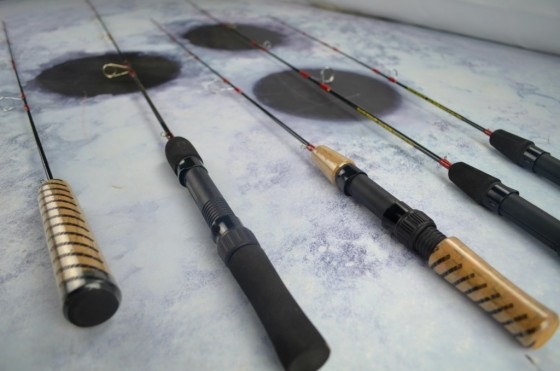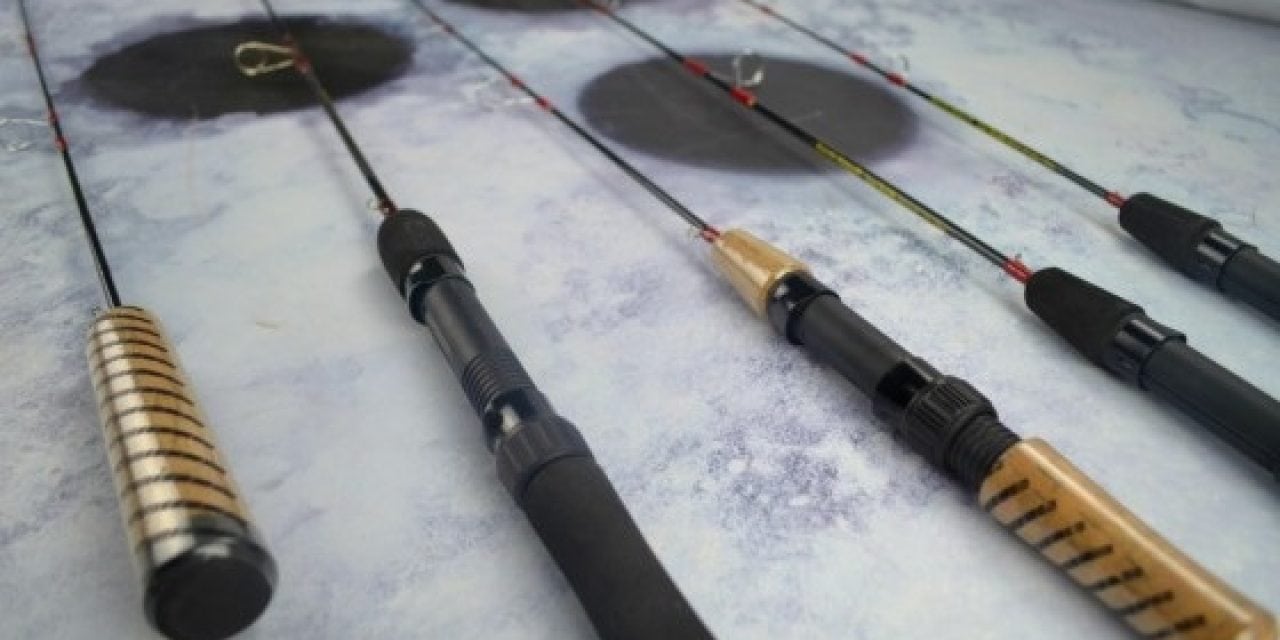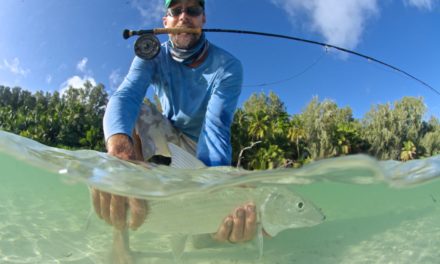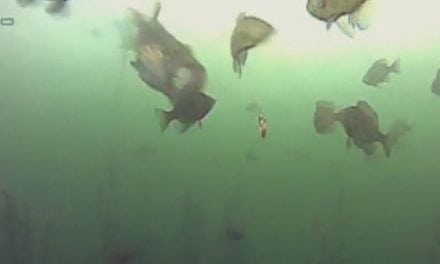 My good friends from FishingSaskatchewan.ca recently added a special segment to their ever-active digital media, one called “Ask the Pros.” It’s designed to let their followers send in questions, which are in turn directed to various fishing personalities with their video responses posted on the site. Recently nominated as a talking head, I received a somewhat challenging, hypothetical question: “If you were forced to choose just one ice rod, what would it be?”
My good friends from FishingSaskatchewan.ca recently added a special segment to their ever-active digital media, one called “Ask the Pros.” It’s designed to let their followers send in questions, which are in turn directed to various fishing personalities with their video responses posted on the site. Recently nominated as a talking head, I received a somewhat challenging, hypothetical question: “If you were forced to choose just one ice rod, what would it be?”
Ouch! That’s like asking my wife if she was limited to one purse! Still, the question was intriguing, and even after providing my response for Fishing Saskatchewan, thought this might be interesting fodder for further discussion—so here it goes.
 Given a wide-ranging variety of situations, this isn’t easy. A stout, heavy action lake trout rod would hardly be a reasonable choice when fishing finicky, relatively tiny shallow water sunfish; neither would a short, thin-tipped micro stick be suitable when pursuing aggressive, thick boiled, deep water trout. But those are extremes. If forced to make a choice and narrow the selection down to just one single rod, the art of compromise comes into play.
Given a wide-ranging variety of situations, this isn’t easy. A stout, heavy action lake trout rod would hardly be a reasonable choice when fishing finicky, relatively tiny shallow water sunfish; neither would a short, thin-tipped micro stick be suitable when pursuing aggressive, thick boiled, deep water trout. But those are extremes. If forced to make a choice and narrow the selection down to just one single rod, the art of compromise comes into play.
While bait casting models certainly have their place, I’d opt for a spinning model. It couldn’t be too short or too long—I’d likely select something between 27-31”, comprised of a relatively durable, yet deftly tapered, tubular e-glass or graphite composite blank featuring a relatively fast action— meaning it would have some bend at the tip. This would provide the sensitivity necessary to maintain contact with smaller, lighter presentations, and a better sense of feel to detect pick-ups from light-biting fish.
At the same time, this rod would have to feature a medium-light to medium power designation—in other words, provide sufficient strength to work somewhat larger, heavier baits and the authority to set the hook and control the fish. To supply balance and reduce weight, I’d go with a genuine cork handle and locking reel seat, and lightweight, mid-sized footed stainless guides.
I’d match this with an ultra-light, anti-reverse spinning reel featuring a smooth, multi-setting front drag and line capacity of 60-100 yards of approximately six pound test premium monofilament, which I’d spool as backing. This may be somewhat light for some applications, a bit heavy for others, but remember, we’re compromising!
I’d fill the gap by using a barrel swivel to connect a relatively long, thin diameter 4, 2, or 1 pound test monofilament leader when fishing smaller or finicky fish, then up the ante and go with 8, 10, or 12 pound fluorocarbon when fishing larger game. For sharp-toothed species like northern pike, a thin diameter wire leader might also be appropriate.
Lures? The trick would be maintaining satisfactory balance and adjusting your techniques to match the system. Obviously, we’d be all set when working mid-sized lures, beyond that, there must be compromises. Really tiny micro jigs would be tough to fish, but smaller, somewhat heavier-bodied tungsten based models might be plausible. Giant spoons and two ounce lures are certainly out, but this system may be compatible with some larger profile, 5/8 -1 ounce, flutter spoons, vibrating blades, lipless cranks or swim baits.
From here, the key here would be making adjustments in your jigging techniques to ensure sufficient contact with your presentation. Using a consistent, vibrating rhythm when fishing smaller, lighter lures would make strikes more noticeable, and emphasizing the downward flutter and swim portions of your jigging motions when using heavier baits would allow improved control with larger ones, respectively. And either way, you’d need to watch your line intently for any unusual or unexpected movements that might indicate strikes—then err on the side of caution and unhesitatingly set the hook at even the slightest hint of unusual movement.
There’s no question choosing just a single ice rod would eliminate extremes and greatly limit versatility, ultimately reducing your effectiveness to some degree. But given this hypothetical situation, picking a well-balanced rod landing square within the center of the overall spectrum in term of action (fast) and power (medium-light/medium), balancing it with a relatively small spinning reel spooled with the highest quality six pound monofilament backing available and connected to a relatively long leader consisting of the composition, strength and diameter most appropriate to the situation, would likely constitute a sufficient system.
I’d then modify my lure selection in an attempt to optimize balance, and make carefully calculated adjustment s in my jigging techniques to ensure the best possible performance.
Overall, this would certainly be far from an ideal situation, but in the event I would ever have to choose just one ice rod…well, hypothetically anyway, this is how I’d most likely go about it!
The post IF I HAD TO CHOOSE JUST ONE ICE ROD … By Tom Gruenwald appeared first on ODU Magazine-North America's #1 Digital Fishing Magazine.

















